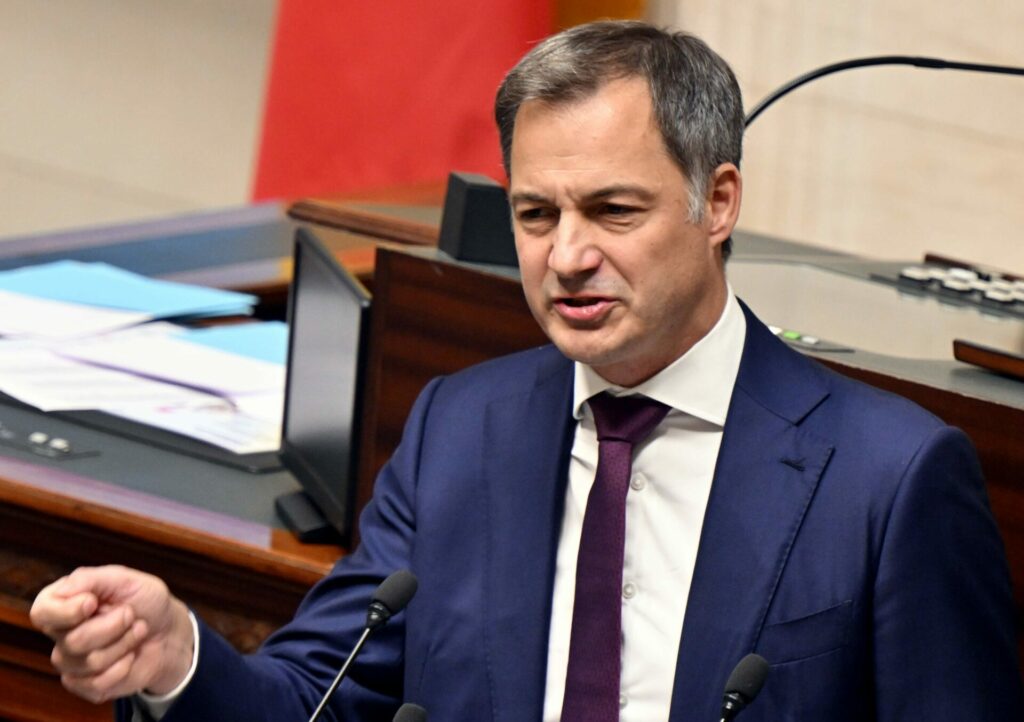Belgian Prime Minister Alexander De Croo has issued a strident defence of the Federal Government's new budget proposal, claiming that the fiscal measures will "give everyone a chance" and help prevent "social bloodshed".
In a much-anticipated annual speech to the Chamber of Representatives on Tuesday afternoon, the Belgian leader also defended his "Vivaldi" coalition government's high levels of public spending since coming to power in October 2020.
"Protecting our citizens and our companies in times of crisis has cost us more than €20 billion," De Croo said, referring to the Covid-19 pandemic and subsequent energy crisis precipitated by Russia's full-scale invasion of Ukraine last year. "We have not left anyone behind."
The proposal has been vehemently criticised by Belgian opposition parties for, among other things, demanding cuts of up to €100 million to the country's healthcare industry as well as expanding the government's highly controversial "flexi-job" scheme to 12 different economic sectors.
However, De Croo downplayed suggestions that the budget will exacerbate the already severe economic insecurity in Belgium, arguing that his coalition "has avoided doomsday thinking and shown ambition".
"Our policy has made it possible to protect the wallet of Belgians," De Croo added. "Our policy has made it possible to avoid social bloodshed."
One step at a time
De Croo addressed concerns that from next year Belgium will contravene the terms of the EU's Maastricht Treaty, according to which Member States are required to maintain budget deficits under 3% of annual GDP. (The 3% limit was temporarily suspended during the Covid-19 pandemic; the suspension was later extended to 2024 following the invasion of Ukraine.)
"Our public finances are improving," De Croo insisted. "They are progressing step by step in the right direction with the Maastricht standard in mind. We keep our promises. We support our citizens in difficult times. And then we set our priorities. That's what this team does."
If Belgium fails to maintain a total (i.e. federal and regional) deficit of less than 3% next year, it is likely that new fiscal rules proposed earlier this year by the European Commission will force the country to implement even more stringent budget cuts in 2025.
Related News
- Belgium set to violate EU budget rules next year despite controversial federal reforms
- Belgian wages most resilient to rampant inflation, OECD figures show
Under the Commission's scheme, Member States which run deficits greater than 3% of GDP will be forced to trim their budgets by 0.5% per year until they fall below the 3% threshold. Commission Executive Vice-President Valdis Dombrovskis has also explicitly warned that the EU would not permit any "heel-dragging [or] backloading" by Member States.
The EU proposal has been vehemently criticised by European labour groups. General Secretary of the European Trade Union Confederation (ETUC) Esther Lynch has described it as "damaging and short-sighted", arguing that it will likely lead to "fewer jobs, lower wages, fewer public services and more poverty".

